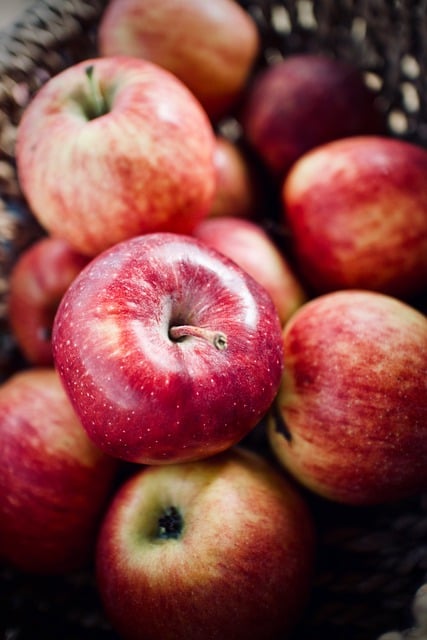Choosing the Right Food for Your Pet: A Comprehensive Guide
As a pet owner, one of the most important decisions you’ll make is what to feed your furry friend. With so many options available, it can be overwhelming to determine the best diet for your pet. In this article, we’ll delve into the world of pet nutrition and provide you with expert advice on choosing the right food for your beloved companion.
First and foremost, it’s essential to understand that every pet is unique, just like humans. What works for one pet may not work for another, so it’s crucial to tailor their diet to meet their individual needs. In this article, we’ll explore the key factors to consider when selecting a food for your pet, including dietary restrictions, allergies, and life stages.
**Understanding Your Pet’s Dietary Needs**
Before making any decisions, it’s vital to understand what your pet needs from their food. This includes:
* **Protein**: Protein is essential for maintaining muscle mass and overall health. Look for foods with high-quality protein sources such as chicken, salmon, or lamb.
* **Fat**: Fat provides energy and helps maintain healthy skin and coat. Choose foods with healthy fats like omega-3s or coconut oil.
* **Carbohydrates**: Carbs provide fiber, vitamins, and minerals. Opt for whole grains like brown rice or oats.
**Considering Dietary Restrictions**
If your pet has a food allergy or sensitivity, it’s crucial to choose a diet that caters to their needs. Some common dietary restrictions include:
* **Lactose intolerance**: Pets with lactose intolerance need a diet that’s free from dairy products.
* **Food allergies**: If your pet has a food allergy, it’s essential to choose a diet that avoids the allergenic ingredient.
**Life Stages: Choosing the Right Food for Your Pet**
Puppies and kittens have different nutritional needs than adult pets. Here are some tips for choosing the right food at each life stage:
* **Puppies**: Puppies need a high-protein diet to support growth and development. Look for foods with high-quality protein sources like chicken or lamb.
* **Kittens**: Kittens require a diet rich in taurine, an essential amino acid for heart health.
**Seasonal Nutrition for Pets**
As the seasons change, your pet’s dietary needs may shift. For example:
* **Summer**: Pets need more water and electrolytes to stay hydrated.
* **Winter**: Pets may benefit from a diet richer in omega-3s to support skin and coat health.
**The Importance of Protein in Pet Diets**
Protein is the building block of life, and pets require it to maintain muscle mass and overall health. Look for foods with high-quality protein sources like chicken, salmon, or lamb.
Seasonal Nutrition for Pets offers expert advice on how to adjust your pet’s diet according to the changing seasons.
The Importance of Protein in Pet Diets
Protein is essential for maintaining muscle mass and overall health. Look for foods with high-quality protein sources like chicken, salmon, or lamb.
The Importance of Protein in Pet Diets provides expert insights into the role of protein in pet nutrition.
Pet Nutrition Alliance | PNA is a global collaboration of nine leading veterinary and animal nutrition organizations. Pet Nutrition Alliance | PNA is a global collaboration of nine leading veterinary and animal nutrition organizations.
Hill’s Pet Nutrition – Dog & Cat Food Transforming Lives offers expert advice on choosing the right food for your pet.
Choosing the Right Food for Your Pet: A Comprehensive Guide
As a pet owner, one of the most important decisions you’ll make is what to feed your furry friend. With so many options available, it can be overwhelming to determine the best diet for your pet. In this article, we’ll delve into the world of pet nutrition and provide you with expert advice on choosing the right food for your beloved companion.
Choosing the Right Food for Your Pet
When it comes to feeding your pet, there are several factors to consider. These include dietary restrictions, allergies, and life stages. Here are some key tips to keep in mind:
* **Protein**: Protein is essential for maintaining muscle mass and overall health.
* **Fat**: Fat provides energy and helps maintain healthy skin and coat.
* **Carbohydrates**: Carbs provide fiber, vitamins, and minerals.
**Dietary Restrictions**
If your pet has a food allergy or sensitivity, it’s crucial to choose a diet that caters to their needs. Some common dietary restrictions include:
* **Lactose intolerance**: Pets with lactose intolerance need a diet that’s free from dairy products.
* **Food allergies**: If your pet has a food allergy, it’s essential to choose a diet that avoids the allergenic ingredient.
**Life Stages**
Puppies and kittens have different nutritional needs than adult pets. Here are some tips for choosing the right food at each life stage:
* **Puppies**: Puppies need a high-protein diet to support growth and development.
* **Kittens**: Kittens require a diet rich in taurine, an essential amino acid for heart health.
**Seasonal Nutrition**
As the seasons change, your pet’s dietary needs may shift. For example:
* **Summer**: Pets need more water and electrolytes to stay hydrated.
* **Winter**: Pets may benefit from a diet richer in omega-3s to support skin and coat health.
**The Importance of Protein**
Protein is the building block of life, and pets require it to maintain muscle mass and overall health. Look for foods with high-quality protein sources like chicken, salmon, or lamb.
By following these tips and considering your pet’s individual needs, you can choose a diet that meets their nutritional requirements and supports their overall health. Remember, every pet is unique, so be sure to consult with your veterinarian if you have any questions or concerns about your pet’s diet.

